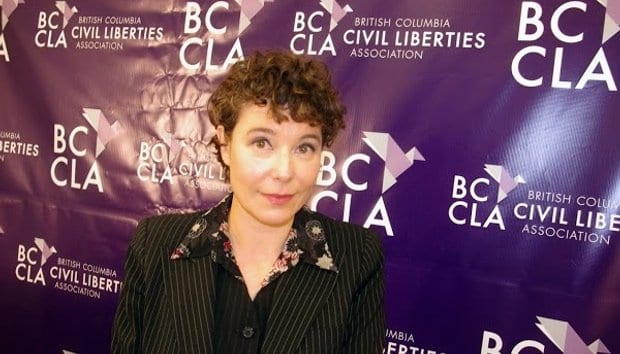The executive director of the BC Civil Liberties Association (BCCLA) says queer Canadians should be particularly concerned about government surveillance programs because of their long history of spying on the community.
“I think this an important matter and issue for all Canadians, but there’s been a long history of surveillance and spying by police and other authorities on the queer community in Canada going back decades,” Josh Paterson says.
The BCCLA launched a lawsuit against Canada’s national electronic intelligence gathering agency, the Communications Security Establishment Canada (CSEC), on Oct 22, claiming its surveillance programs violate the Charter of Rights and Freedoms.
“Everybody in Canada, including people in the queer community, knows what this means,” Paterson says. “They know what this is about — to be surveilled by the government secretly and for no good reason at all. And that is what we fear is happening on a Canada-wide scale.”
In December 2001, the federal government passed the Anti-Terrorism Act in response to the Sept 11, 2001 attacks on the United States. The act amended the Defence Act to empower the minister of defence to authorize CSEC to intercept the private communications of anyone in Canada who is communicating with someone outside the country. This can include emails, phone conversations, video calls and text messages.
These ministerial authorizations have been issued or renewed on 59 occasions since January 2002.
“Unaccountable and unchecked government surveillance presents a grave threat to democratic freedoms,” says BCCLA lawyer Joseph Arvay in a press release.
“We are deeply concerned that CSEC is gaining secret, illegal access to the private communications of ordinary Canadians,” Arvay says, “and there are no reasonable safeguards in place to monitor its activities.
“We know from the experience of other countries that government agencies have a tendency to push and even break the boundaries of spying unless they are checked,” he says.
The BCCLA is also challenging 2005 and 2011 ministerial directives issued by the minister of defence that allow CSEC to collect, analyze and use the metadata that is generated every time someone accesses the internet or uses a cellphone.
“If you think about what is contained in metadata — the data includes information of who you’re calling, who you’re emailing and when and from where and how long you spoke to them,” Paterson says. “They don’t need to tap into the words you’re saying on the phone to get a good impression of what your religious affiliation is, what your work status is, who your friends are or things around your medical history if you’re calling into certain medical centre and doctors. These are all things that can be revealed with the harvesting of metadata.
“And governments all over the Western world say, ‘It’s just sort of what you wrote on the outside of the envelope you mailed — it’s no big deal.’ It is a big deal, and that’s one of the reasons we’re launching this suit today.”
The BCCLA is seeking a declaration that the provisions, authorizations and directives unjustifiably infringe Section 8 of the Charter, which protects Canadians from unreasonable search and seizure, and Section 2, which guarantees freedom of expression.
OpenMedia.ca, which works to safeguard the internet from government surveillance, has launched a campaign calling on Canadians to support the BCCLA’s lawsuit by signing a pledge on its website.
“Each and every Canadian deserves to know if their private info data is being stored in government databases,” says OpenMedia.ca executive director Steve Anderson.
“You don’t want your online activities, your conversations to be spied upon, be collected by the government,” says Anderson, who agrees that government surveillance may be especially concerning to the queer community.
“I think that people from the LGBT community might be even more sensitive, considering some of the hate crimes that happen and the limits that that might impose on free expression,” he says.
BCCLA policy director Micheal Vonn describes a free internet as one of the most pressing human-rights issues of the 21st century.
“If anybody knows about the pointy end of the stick in terms of government surveillance, it is people who have been targeted in the past, and that certainly includes the queer community,” she says.
“So if we’re going to learn lessons from history, we can’t just start over last year and pretend that the homilies about security and trust in the government are going to pass muster. We already know, the world knows, that we require the kinds of oversight checks and balances that are genuine.”
The attorney general of Canada has 21 days to respond to the BCCLA’s claim.

 Why you can trust Xtra
Why you can trust Xtra


